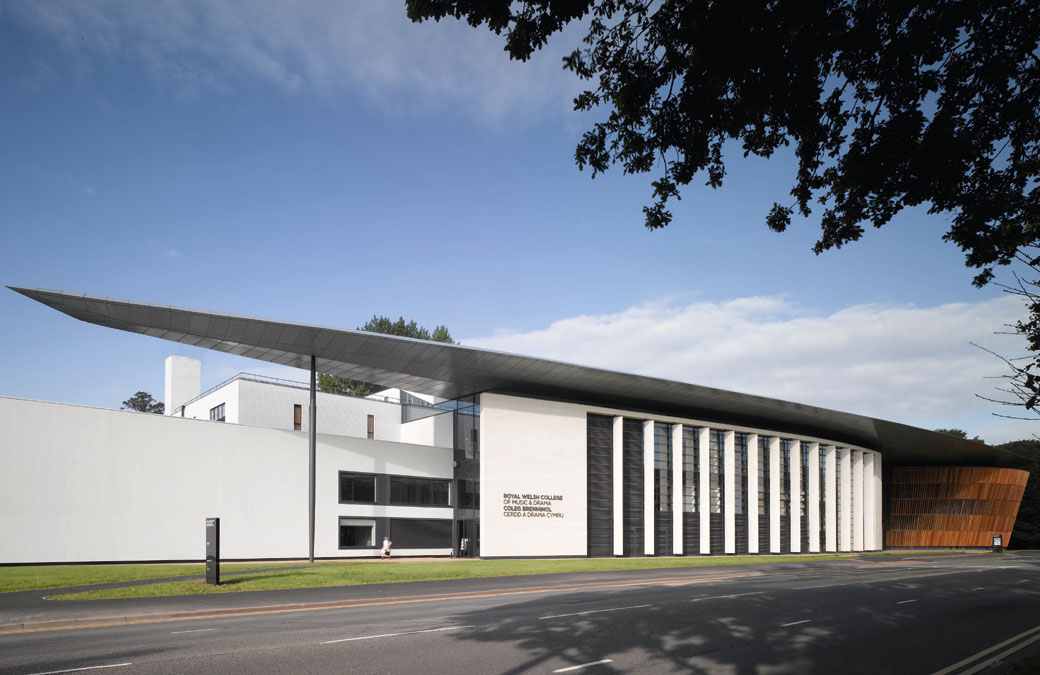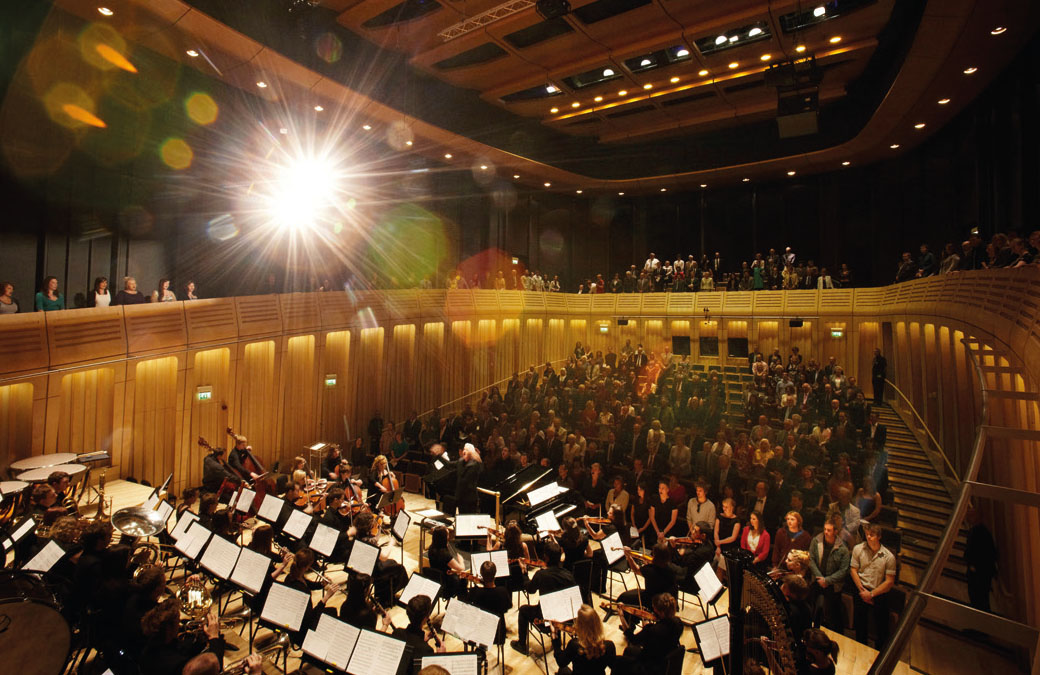
The new principal of the Royal Welsh College of Music and Drama (RWCMD) arrives with an impressive academic pedigree. Helena Gaunt will be well known to many readers as an expert in the theory and practice of conservatoire education, collaborative learning, creative music performance and cultural entrepreneurship. She has had a distinguished career at the Guildhall School of Music and Drama, where she directed the triennial International Reflective Conservatoire conference and chaired the Innovative Conservatoire partnership. She succeeds Hilary Boulding, who left last summer – shortly after being made a Dame for services to education and culture in Wales.
In person, Gaunt is warm and relaxed, talking enthusiastically about her own musical education and the teachers who inspired her before looking forward to her new role. At Haberdashers’ Aske's School in Elstree, she recalls, there was ‘an inspirational music department’ where she loved playing the recorder and then the oboe in ensembles and carol services; she also studied at Junior Trinity with Tess Miller, who was ‘an outstanding teacher – I still feel very close to her’.
An ‘absolutely formative’ experience was playing for four years with the National Youth Orchestra of Great Britain. Highlights include the very first tutti rehearsal of Berlioz's ‘Roman Carnival’ overture (‘it felt as if I was being lifted off my seat’); standing in for Maurice Bourgue, who would be soloist in the concert, for rehearsals of Strauss's oboe concerto; and performing Mahler's 6 and Debussy's Jeux under the baton of Simon Rattle. As an undergraduate, she had the opportunity to play in the European Union Youth Orchestra in equally memorable concerts conducted by Claudio Abbado and Leonard Bernstein, and she went on to be a founder member of the Britten Sinfonia, spending 20 years as a professional oboist.
Nevertheless, Gaunt's first degree at Cambridge University was in English, and her master's at the University of Essex was in the sociology of literature rather than music. ‘I knew I was never going to be able to write fugues!’ she admits. ‘Looking back, I think I was searching for something to deepen the concert hall experience.’ At the time it felt as though she was working in two different worlds, as a performer and as an academic, but in retrospect she can see that both represented her interest in exploring the relationships between art and society.
The two strands began to merge when she took the Performance Communication Skills course at the Guildhall School of Music and Drama (GSMD), and then spent a year with the London Symphony Orchestra helping to set up what became LSO Discovery. Invited by Peter Gane to join the wind, brass and percussion department of GSMD, which he headed, Gaunt quickly discovered that she loved teaching, relishing the task of identifying appropriate performance paths for her students and understanding their different needs and methods of learning.

Gaunt's new haunt © NICK GUTTRIDGE
Gaunt: There is a real opportunity to build on Hilary Boulding's legacy of extraordinary work © KIRAN RIDLEY
Synthesis
Having her own children intensified Gaunt's interest in the learning process, and also meant it was easier for her to concentrate on her academic career rather than continuing to combine it with freelance performing. Appointed as deputy head of department, she became involved in curriculum design and was also given the opportunity to research the ethos and effectiveness of one-to-one tuition in conservatoires.
‘What came out of my research was how powerful and potentially productive this relationship could be, offering the chance to go into real detail from a musical point of view, in terms of the craft of the instrument, and as a mentor, supporting an individual in developing a professional trajectory. Everyone agrees that is the aim – the teacher's desire and intention is to support the student in finding their personal voice and taking ownership of the learning process – but in practice there are real challenges to be faced, involving issues of mutual trust and respect.’
Gaunt's work has informed much of GSMD's decision-making over the past decade, and has also attracted international attention. Since 2008 she has had a cross-school role, working with the staff and students of the drama school as well as with musicians. ‘That has been fascinating, as pedagogy in the theatre is so different – they start from ensemble and peer learning, which is very different from the instrumental teaching model. Yet they have a shared focus on nurturing elite performers and have much to learn from one another.’
A social approach
Cultural entrepreneurship has been a more recent area of interest, which led to her taking an MBA at Ashridge Business School; but she is keen to stress that this shouldn't be seen solely in terms of employability and marketing skills. ‘It's also about exploring ways in which performers can create a social or immersive experience for audiences that is more than just the moment on stage, and reach out to groups that currently don't come to concerts or theatre. It's about getting involved with areas such as health, criminal justice and migration where the arts can and should be so important.’
Gaunt is pleased to be joining RWCMD at a time when it is already encouraging its students to think about these issues and to begin working creatively and collaboratively even before they graduate. She is also looking forward immensely to working in Cardiff, with its constellation of cultural organisations and universities.
‘There is a real opportunity to build on Hilary Boulding's legacy of extraordinary work, and I hope RWCMD will continue to play a unique role in the development of culture for Wales as a whole in an inclusive way.
‘That includes training the next generation and developing a bigger workforce. My sense is that there are really wonderful teachers at the college and I want to develop and build on that further through international exchange.
‘I'm known for my interest in certain fields of conservatoire teaching, and of course I will bring all that with me, but it will be very important to listen to my new colleagues and students, find the DNA of the place, build on its strengths and allow RWCMD to blossom even more than it is doing at the moment.’








